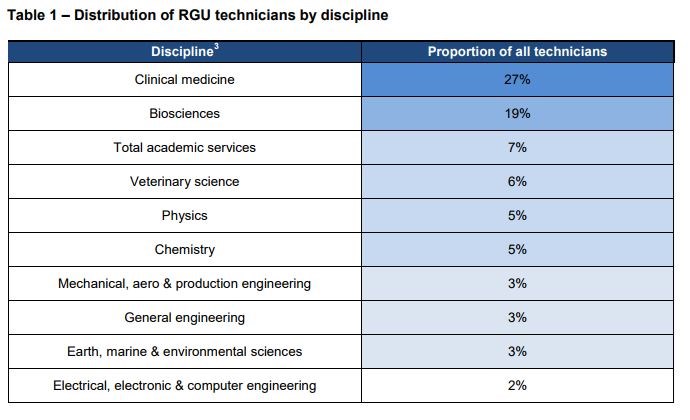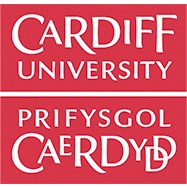Blog: technical workforce and Brexit
04 October 2017
Our senior policy analyst Dr Hollie Chandler blogs on the impact that Brexit could have on the recruitment of skilled technical staff for the UK:
The case for why UK universities need to be able attract and retain talented overseas academics has been made loud and clear by many in the sector and outside it. But what about the other, highly trained experts at our universities who are in non-academic roles? So far, there has been little discussion about overseas staff in in such positions and how Brexit might impact their recruitment by universities.
Technicians are one such group of highly trained, non-academic staff that provide critical support to teaching and research across our universities. They typically work as an integral part of research groups, supporting excellent research and training PhD and postdoctoral researchers in vital techniques and use of equipment. They also play a key role in undergraduate teaching, helping to deliver practical sessions in labs.
Who are university technicians?
Getting a comprehensive view of this workforce is tricky, mainly because there isn’t a good definition of technicians and their roles and responsibilities. The Research Councils UK and others are working to address this, but it might explain why analysis of these positions and their dependence on overseas talent has been notably absent in discussions around immigration to date.
At the Russell Group, we sought to better understand the technical workforce across member universities by using Higher Education Statistics Agency (Hesa) data and mapping relevant technician roles to Standard Occupational Classification (SOC) minor groups.
We identified around 9,000 technicians working at Russell Group universities, with most concentrated in disciplines such as clinical medicine, biosciences and engineering. Together, EU and non-EU nationals make up 13% of this workforce. Although this is lower than the proportion of academics, it’s a significant number of overseas staff who are supporting a broad range of research programmes, most notably across Stem disciplines.
If we further restrict access to overseas technicians we risk compounding the UK’s skills shortage.

Wrongly categorised
One striking feature of this workforce is that it is very highly qualified. Nearly 90% of EU and non-EU technicians at Russell Group universities are skilled to degree level or above and 25% hold a PhD. Given the extent to which these roles support research and the training of technical skills perhaps this is unsurprising. But it is at odds with how the Office for National Statistics (ONS) classifies these roles: technician roles are categorised as either NQF 3 or NQF 4, meaning below degree level and the tier 2 eligibility threshold that academic staff will be able to benefit from after Brexit.
Although they may not be a prerequisite for technician roles, degree and post-graduate qualifications are greatly valued by universities and their benefit is obvious – these qualifications enable technicians to better understand the theory behind research as well as experimental methodology and design. This gives more highly qualified technicians transferrable skills, which enable them to directly contribute to research outputs, improve the efficiency of laboratory operations, and play a more important role in training of staff and students.
This ONS skills classification matters because the current immigration system doesn’t support recruitment of non-European Economic Area technicians as they will not be eligible for tier 2 visas. Looking to a post-Brexit world, if the current immigration system were also applied to EU nationals, our universities may be unable to recruit any overseas technicians.
A technical skills shortage
This is a concern because we risk stemming the flow of experts that can help the UK make the most of innovative technologies developed overseas. It is also a concern because these overseas technicians are helping to fill a significant skills gap in the UK. Estimates suggest UK industry needs to recruit at least 70,000 new technicians every year to replace those retiring and to fill new positions. Demand for Stem technicians is particularly acute.
Government, universities and industry have made clear commitments to technical education and career development to address this gap. This week, signatories of the Technicians Commitment met to discuss the next phase of this important initiative.
But growing the UK’s pipeline of skilled technicians will take time. Meanwhile, if we further restrict access to overseas technicians we risk compounding the UK’s skills shortage, which could ultimately impact on the UK’s world-class research in universities and across industry, particularly in areas where the UK is a world leader such as in medical research and other advanced Stem disciplines.
The UK benefits significantly from tapping into new ideas, skills and innovative approaches
Technicians are a crucial part of higher education and must be considered as we look to develop a new immigration system in the UK. The higher educaton sector must work together to ensure evidence on this workforce is considered in the Migration Advisory Committee’s commission, and can inform the government’s thinking on a future system.
This article appeared originally on the Guardian Higher Education Network site.
-
Adam Clarke
adam.clarke@russellgroup.ac.uk
020 3816 1302
-
Stephanie Smith
020 3816 1310
 X
X


